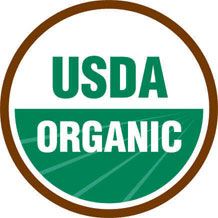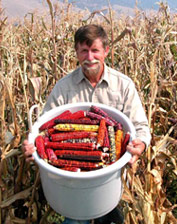Industry leader says organic rules should be amended to address GMO threat
By Ken Roseboro
Published: November 1, 2011
Category: GMO Comtamination of Organic Foods

To access all the articles in this month's issue of The Organic & Non-GMO Report, SUBSCRIBE NOW.
The National Organic Program (NOP) should be amended to address the growing threat of contamination by genetically modified organisms of organic foods. This was one of the main messages expressed at a meeting focusing on the NOP and GMOs at Natural Products Expo East in September.
The meeting featured Miles McEvoy, NOP deputy administrator, Michael Funk, chairman of United Natural Foods, and Missy Hughes, director of government affairs at Organic Valley.
Funk emphasized that consumers want assurance that organic products are non-GMO. He said the NOP has loopholes in addressing the GMO threat because it was created before GM crops were widely grown. “The NOP needs to be amended to address the realities of today’s world,” Funk said.
McEvoy explained the NOP’s policy regarding GMOs. Genetic engineering is considered an “excluded method” in organic production.
“GM presence alone (in organic) does not lead to violation of the NOP regulations,” McEvoy said. “The unintended presence of GMOs shouldn’t affect the organic status of a product.”
McEvoy said that knowingly planting GM seed would violate the rules but the inadvertent presence of GMOs in seed would not be a violation.
One audience member said that one organic seed company cannot guarantee GMO levels below 0.25% in corn seed. McEvoy said that wouldn’t be a violation.
Several audience members suggested that GMO thresholds were needed in organic products. McEvoy said that he was comfortable with improving the NOP standards with regard to GMOs, which could include setting thresholds.
He also said there is a proposed rule that would require certifiers to test for prohibited substances such as pesticides and that this could include testing for GMOs.
Ken Roseboro, editor of The Organic & Non-GMO Report, said there is a lack of consistency among certifiers when interpreting the GMO prohibition. For example, certifiers will evaluate the GMO risk of an ingredient used in organic processing in different ways.
McEvoy responded that organic certifiers need to do more to ensure there is consistency.
“It’s a complex and tough issue for farmers,” Funk said about the GMO threat.
© Copyright The Organic & Non-GMO Report, November 2011





